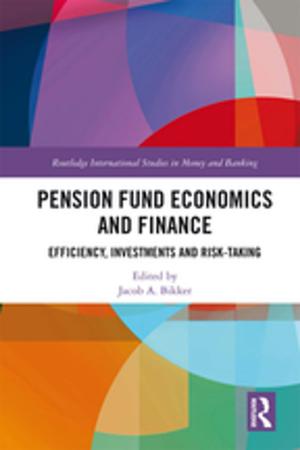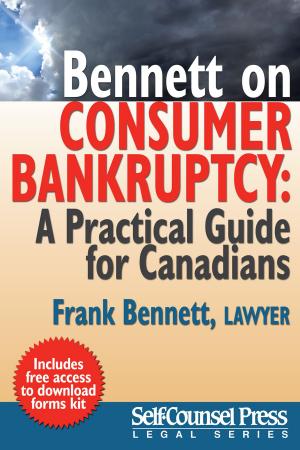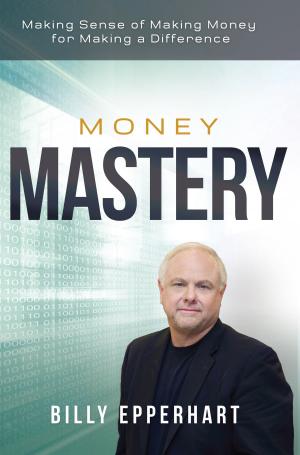Bitcoin The Secrets Unlocked for Mum and Dad Investors
Business & Finance, Finance & Investing, Commodities, Personal Finance| Author: | Michael W Scotney | ISBN: | 9780648280712 |
| Publisher: | Head Out Of The Sand Investments Pty Ltd | Publication: | March 7, 2018 |
| Imprint: | Head Out Of The Sand Investments Pty Ltd | Language: | English |
| Author: | Michael W Scotney |
| ISBN: | 9780648280712 |
| Publisher: | Head Out Of The Sand Investments Pty Ltd |
| Publication: | March 7, 2018 |
| Imprint: | Head Out Of The Sand Investments Pty Ltd |
| Language: | English |
Whatever your opinion on Bitcoin and cryptocurrency's, and educated commenters have described them as everything from the future of money to an outright scam – it seems they are here to stay. Will it succeed in doing what many early adopters and evangelists claim it is destined to – replace government-controlled, centralised money with a decentralised alternative, controlled by nothing besides market forces? Cryptocurrency is the formation of such a system, and it premises itself on the idea that the public should hold the money of the public.
Bitcoin is a digital, decentralised currency that relies on an international ledger checked by individuals known as miners, and it is, in simple terms, the modern equivalent of paper money. Except, while real paper money has ways to distinguish itself from fake money, Bitcoin does not, and that is why it is subjected to a network of international ledgers that ensure that no one is lying about the amount if bitcoin they own. This international system of ledgers is known as Blockchain, which is the regulatory system that ensures that Bitcoin remains credible.
Bitcoin was technically created by Satoshi Nakamoto— an individual who wrote a paper regarding the development of a cryptocurrency that does not require any financial intermediaries. Since then, the currency has vastly influenced the investment market and seeks to transform the entire system of exchange radically.
It is predicted that the legitimisation of bitcoin as an investment in the future could make its demand sky-rocket, and some believe that its ability to hedge in future markets will increase the currency's attractivity to large-scale and institutionally backed investors, ensuring that there is a more comprehensive and coherent system to bitcoin trading.
From December 4th to December 6th, Bitcoin's value increased by a staggering US$5000, entirely leaving investors and financial gurus alike dumbfounded by the sheer demand of the currency.
Bitcoin is revolutionary because the double-spending problem can be solved without needing a third party. In computer science, the double-spending problem refers to the problem that digital money could be easily spent more than once. Consider the situation where digital money is merely a computer file, just like a digital document. A can send money to B in an email, but will still retain a copy of that file even after A has used it and hence spent it. Without an intermediate third-party that ensures that A does not have a copy of the money file A sent to B, the double-spending problem cannot be solved. Bitcoin solves this problem through Block Chain, which is an international system of ledgers that decentralise it to individual computers.
The Bitcoin network continuously maintains this ledger, and it has a record of all transactions ever processed, allowing anyone with a Bitcoin software to verify the validity of a transaction. All transactions are broadcasted onto the ledger on each computer/software and are included in the Block Chain once they are successfully verified.
Whatever your opinion on Bitcoin and cryptocurrency's, and educated commenters have described them as everything from the future of money to an outright scam – it seems they are here to stay. Will it succeed in doing what many early adopters and evangelists claim it is destined to – replace government-controlled, centralised money with a decentralised alternative, controlled by nothing besides market forces? Cryptocurrency is the formation of such a system, and it premises itself on the idea that the public should hold the money of the public.
Bitcoin is a digital, decentralised currency that relies on an international ledger checked by individuals known as miners, and it is, in simple terms, the modern equivalent of paper money. Except, while real paper money has ways to distinguish itself from fake money, Bitcoin does not, and that is why it is subjected to a network of international ledgers that ensure that no one is lying about the amount if bitcoin they own. This international system of ledgers is known as Blockchain, which is the regulatory system that ensures that Bitcoin remains credible.
Bitcoin was technically created by Satoshi Nakamoto— an individual who wrote a paper regarding the development of a cryptocurrency that does not require any financial intermediaries. Since then, the currency has vastly influenced the investment market and seeks to transform the entire system of exchange radically.
It is predicted that the legitimisation of bitcoin as an investment in the future could make its demand sky-rocket, and some believe that its ability to hedge in future markets will increase the currency's attractivity to large-scale and institutionally backed investors, ensuring that there is a more comprehensive and coherent system to bitcoin trading.
From December 4th to December 6th, Bitcoin's value increased by a staggering US$5000, entirely leaving investors and financial gurus alike dumbfounded by the sheer demand of the currency.
Bitcoin is revolutionary because the double-spending problem can be solved without needing a third party. In computer science, the double-spending problem refers to the problem that digital money could be easily spent more than once. Consider the situation where digital money is merely a computer file, just like a digital document. A can send money to B in an email, but will still retain a copy of that file even after A has used it and hence spent it. Without an intermediate third-party that ensures that A does not have a copy of the money file A sent to B, the double-spending problem cannot be solved. Bitcoin solves this problem through Block Chain, which is an international system of ledgers that decentralise it to individual computers.
The Bitcoin network continuously maintains this ledger, and it has a record of all transactions ever processed, allowing anyone with a Bitcoin software to verify the validity of a transaction. All transactions are broadcasted onto the ledger on each computer/software and are included in the Block Chain once they are successfully verified.















